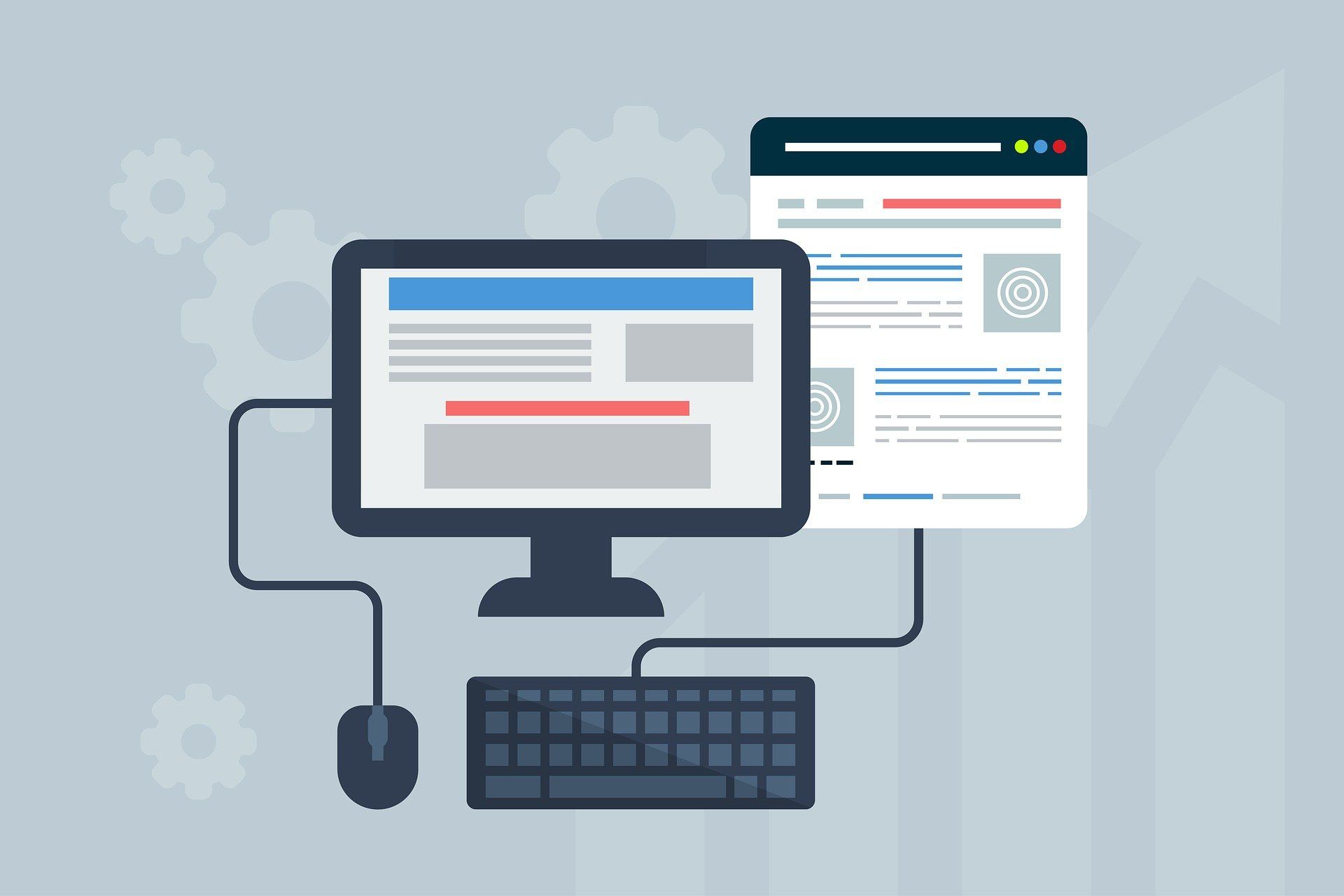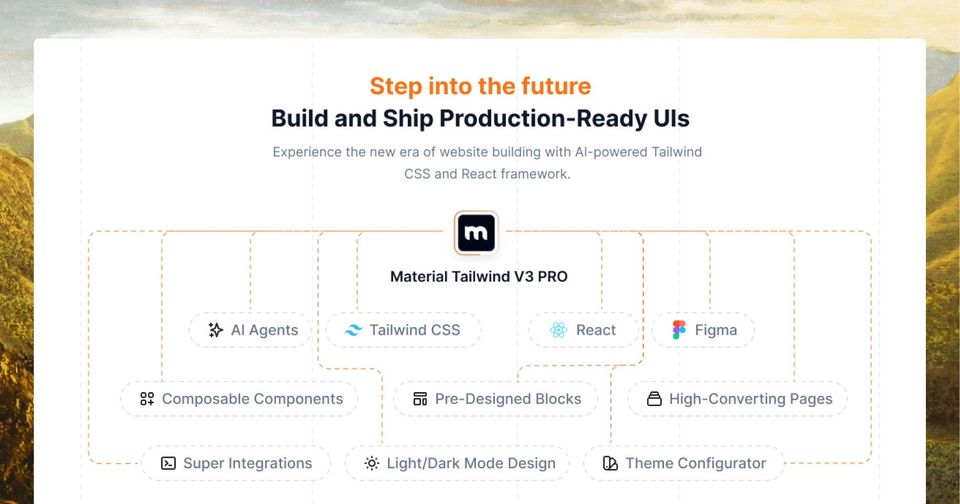Web development is the process of creating and maintaining a web page. It's the work that goes on behind the scenes to make a website seem good, function efficiently, and provide a good user experience.
Many website visitors don't give much thought to the underlying coding that directs them to a payment page when they click on a link like "Pay Now." It is the job of web developers to design the button's appearance and the logic that powers the website.
Web developers use several programming languages and platforms to create and manage web pages. Let's start by exploring the main types of web development to help you decide which is right for you.
Front-end web development
Front-end web development is in charge of a website's visual appearance.
All devices must be taken into consideration when developing a front-end for a website. HTML, JavaScript, and CSS are among the most common programming languages.
Front-end developers stay on top of the latest online design and development trends to ensure that websites are optimized for users and search engines, as well as following industry standards for website security.
Front-end developer
The Front-End Developer (also known as a Front-End Engineer or a "Web Developer / Designer") is a programmer who works on the interface of a website.
It's the job of a front-end developer to design the website’s appearance, feel, and interactive features. It is common for them to be mistaken for the sole function in web development or the role of a web designer.
When it comes to how a website appears on a mobile device, tablet, or computer, the front-end developer is responsible for making sure the content, colors, and graphics look well.
When you hover over a button, it changes color, or a window appears when you click on a link. The front-end developer is responsible for creating this. They ensure that what you see is well-ordered, appealing, and useful.
Some of the most popular programming languages front-end developers use are:
- HTML
- CSS
- JavaScript
- JQuery
- React
- AngularJS
You may be interested: The Front-end Developer Roadmap - How to Become One
Back-end web development
Back-end web development is in charge of creating and maintaining the code that allows a website to function. This code links the website to the server and guarantees that data and transactions are processed appropriately.
Java (as opposed to JavaScript), PHP, and MySQL are among the most commonly used programming languages, while Python and Golang are more recent additions.
Back-end web developers must stay on top of the latest technological trends by joining online forums where they can exchange coding advice and obtain assistance.
The Back-End Developer
In web development, the back-end developer plays a critical role. They're the ones in charge of the mechanics that keep your website up and running smoothly.
Back-end developers write server-side code to ensure that data exchanges between the front-end and back-end of a website are seamless and error-free. This is best demonstrated by an internet retailer.
There is a database on a server where prices and product photos are maintained. Products and pricing are updated in the database and then shown on the website when it's time to change prices or start an automatic holiday sale.
Everything works when you check out and complete a transaction because the back-end developer designed it to be that way. They develop the code that enables all of those simple-to-use features.
A back-end developer can write code in several languages, depending on the task at hand. Back-end developers often work in one of the following languages:
- Java
- PHP
- Ruby and Ruby On Rails
- C#
- MySQL
- MongoDB
The Complete Roadmap for Becoming a Backend Developer: Step-By-Step Instructions

Full-stack web development
Full-stack web development encompasses both front-end and back-end tasks. A full-stack developer may be responsible for all aspects of a website's development, from the server-side to the user interface, depending on the complexity of the project.
Web developers who concentrate on a single area of web development may nonetheless find their wide skills valuable in debugging or speeding up a project.
There are some technologies that full-stack developers may utilize to improve websites' commercial capabilities, such as better programming languages (or even no- or low-code trends) and blockchain.
It is rare to find a full-stack developer who can work on both the front and back ends of a website.
Because they have a thorough understanding of both the front and back ends of web development, they are capable of building a whole dynamic website on their own.
In general, full-stack developers are well-versed in a wide range of programming languages and have a breadth of expertise to draw upon. When it comes to working with front-end and back-end developers, they tend to get along well.
Many full-stack programmers, although being able to do both front-end and back-end development, lack expertise in any role.
Some developers excel at both front-end and back-end work. There are a few full-stack devs out there, but they're extremely rare and difficult to find.
Full-stack developers often write code in whichever language they want since they are familiar with almost all of them.
A look at the many job options in web development
When it comes to web development, there are a variety of professions to choose from. Each function has distinct tasks and demands distinct talents, despite their overlap.
Web designer
Website design is the responsibility of a web designer (also known as a digital designer). In addition, they should have a good grasp of best practices for building a site that is functional, attractive, and effective in attracting visitors.
To create their sites, web designers make use of a wide range of visual design applications. A background in programming helps deliver their objectives to the web coder.
You may be interested in our newest UI/UX Design Guide - Book
Web programmer
To bring a website to life, a developer or programmer must write the code. Programmers that specialize in front-end web development work with web designers to implement their designs.
The server code that powers a website is written by back-end web programmers. Since they are in charge of making the site's user interface visually appealing, web programmers frequently have a working knowledge of web design principles.
Developer of content
When it comes to the actual writing for the website, the web content developer is the specialist you should count on.
Blog entries, product descriptions, photographs and videos, and news pieces are all examples of content that might be included.
Search engine optimization (SEO) and HTML are two common programming languages that content creators employ to make sure their websites rank well in search results.
Webmaster
As a webmaster, you're responsible for everything, from the design and architecture of an organization's website to the programming, security, and other parts of the site.
Managing an organization's website is a collaborative effort between the company's marketing and programming departments, and the webmaster is responsible for making sure that the website is successful in attracting and maintaining users.
For a webmaster, knowledge in design, code, sales, and marketing are must-have attributes.
What it takes to be successful
How can you tell a good web developer from a bad one? The following are just a handful of the talents that may assist web development professionals in growing their careers.
Writing great computer code
Strong coding abilities are required. Having a working knowledge of HTML and CSS is only the beginning. An eagerness to keep up with the latest coding techniques is essential.
Being detail-oriented
There is a lot of time and effort involved in testing and debugging code, therefore patience and analytical abilities are essential.The importance of testing and quality assurance in developing a digital product cannot be overstated. Here is how to perform user acceptance testing in 5 steps.
Thinking outside the box
Users and search engines both play an important role in a website's success.
To create a successful website, web designers must think outside the box when it comes to integrating user experience, SEO, and other elements.

Freelance Web Developer or a Company-hire?
While many web designers work independently, the majority are employed by a business or corporation.
Creating a successful website requires a deep understanding of the needs of the company's sales department, for example. Collaborating with professionals in user experience and content generation is more than necessary.
The differences in a coder's employment are many: freelancers may already have too much on their plate, and they might not have the time to fully commit to your website.
While those working in a website design and development company know how much they can do for a client. If they already have projects lined up, they will provide a more accurate picture of the timeline.
Choosing a Web Development Language: 4 Factors to Consider
When choosing which web development is the right one for you and your company, there are several factors to consider.
The Web Development Language
When deciding on a web development language, front-end, and back-end developers both must stay informed with current web development trends.
The Duration of the Deployment Process
Code size is an important consideration. Optimized and minimally developed apps require less time to deploy in a web server/live environment because of this.
Targeted Platform
If you wish to write software for Windows and Linux platforms, you should choose Java. Because with the Java Virtual Machine (JVM), you can run your Java program on any computer that has Java installed.
The Ease to Create and Maintain
You should select a language that is simple to create and maintain.
Maintainability is likely to be easier with HTML, Python, Java, and PHP. Because of this, web developers will probably be willing to pick up these new languages.
Most frequently asked questions concerning web development
- What are the most often used programming languages in the field of web development?
For web development, the following programming languages are most frequently used: JavaScript, Python, PHP, Typescript, Ruby.
All of these programming languages aid in the creation of software ranging in complexity from simple personal applications to large-scale business systems.
These languages are useful if you want to build scalable and performance-oriented online applications.
- What are the fundamentals of web design?
- Become familiar with visual design principles
- Get a handle on the fundamentals of HTML
- Learn the basic concepts of CSS
- Learn the fundamentals of user interface and user experience design.
- Build a simple website from the ground up and keep improving it as you learn more about web development
Final Thoughts on Web Development
Whether you are searching to hire a developer or looking to become one, this extensive article surely helped you get a better grasp of what a web developer is.
Aside from that, you now know what they do, what sets them apart, and what to look out for.
So, hopefully, our guide will help you find what you need!





